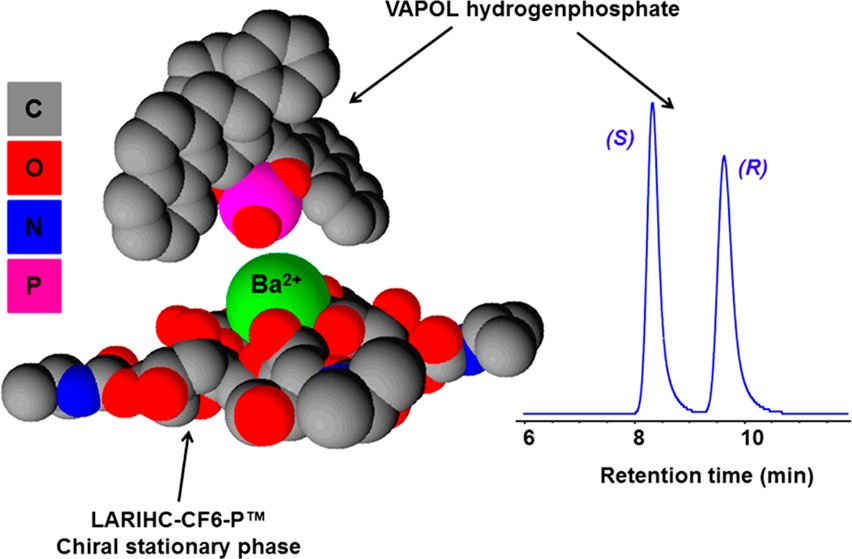Please join us for a FREE LIVE WEBINAR
May 8, 2024 at 2:00pm EDT
Addressing Challenging Chiral Separations
 As with all separations, enantioselective chromatography can span the gamut from straight forward to highly challenging. Such separations can involve analytical and/or preparative procedures, high throughput or fast separations, complex matrices, unknown synthetic impurities, etc. Often an SFC approach may be preferable for prep but an analytical reversed phase HPLC method is wanted for reaction/product monitoring/quality control. Over the years we have delt with numerous such situations some of which needed interesting or unusual approaches which we hope will become routine in the future. A selection of examples will be given which will involve HPLC, SFC, chiral detection and data processing approaches. The chiral compounds used as examples range from highly unusual/complex to more common entities.
As with all separations, enantioselective chromatography can span the gamut from straight forward to highly challenging. Such separations can involve analytical and/or preparative procedures, high throughput or fast separations, complex matrices, unknown synthetic impurities, etc. Often an SFC approach may be preferable for prep but an analytical reversed phase HPLC method is wanted for reaction/product monitoring/quality control. Over the years we have delt with numerous such situations some of which needed interesting or unusual approaches which we hope will become routine in the future. A selection of examples will be given which will involve HPLC, SFC, chiral detection and data processing approaches. The chiral compounds used as examples range from highly unusual/complex to more common entities.
Click here to join the live webinar, May 8th at 2pm.
 Dr. Daniel Armstrong is the Welch Distinguished Professor of Chemistry and Biochemistry at the University of Texas at Arlington. He has more than 800 publications and received over 35 awards for teaching and research, including numerous ACS Awards and the Chirality Medal. He has been named one of the top 10 analytical scientists in the world by Analytical Scientist magazine and was elected to the National Academy of Inventors in 2014. He has mentored and graduated over 120 Ph.D. analytical chemists, nearly half of which were women. Dr. Armstrong developed the most comprehensive solvation and characterization models for room-temperature ionic liquids (RTILs) and pioneered their use in analytical chemistry. He also developed ILs as the most versatile MS reagents. His work and columns were in part responsible for the chromatography–led revolution in chiral separations and provided the impetus for the FDA’s regulatory changes regarding chiral drug development in 1992. He has developed rapid, high-efficiency, microfluidic methods for analyzing microorganisms. His work has been cited over 53,000 times and he has a Hirsch Index rating of 116. He has organized many international conferences and over 100 short courses worldwide.
Dr. Daniel Armstrong is the Welch Distinguished Professor of Chemistry and Biochemistry at the University of Texas at Arlington. He has more than 800 publications and received over 35 awards for teaching and research, including numerous ACS Awards and the Chirality Medal. He has been named one of the top 10 analytical scientists in the world by Analytical Scientist magazine and was elected to the National Academy of Inventors in 2014. He has mentored and graduated over 120 Ph.D. analytical chemists, nearly half of which were women. Dr. Armstrong developed the most comprehensive solvation and characterization models for room-temperature ionic liquids (RTILs) and pioneered their use in analytical chemistry. He also developed ILs as the most versatile MS reagents. His work and columns were in part responsible for the chromatography–led revolution in chiral separations and provided the impetus for the FDA’s regulatory changes regarding chiral drug development in 1992. He has developed rapid, high-efficiency, microfluidic methods for analyzing microorganisms. His work has been cited over 53,000 times and he has a Hirsch Index rating of 116. He has organized many international conferences and over 100 short courses worldwide.
